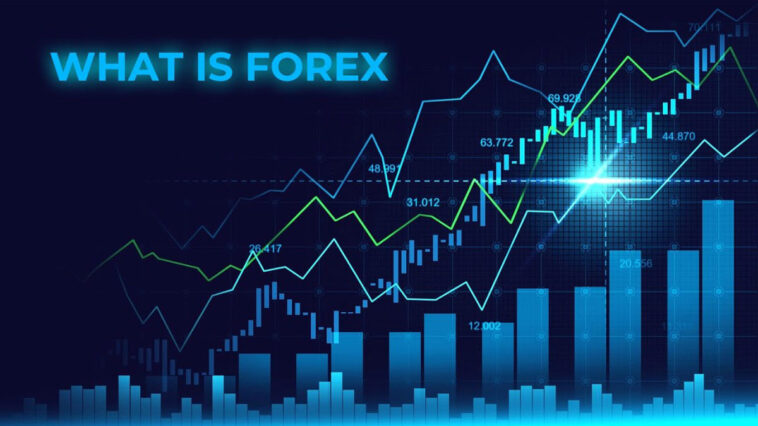“Forex” is the word, in common parlance, that means “foreign exchange”. So, what is the forex market? The most obvious answer is that it is a market where currencies are exchanged. Hence, the forex markets allow investors, like individuals and banks, to purchase, exchange, or sell any currencies. The forex market is the largest of all financial markets in the world. It comprises entities like banks, central banks, commercial institutions, investment management corporations, retail currency brokers, hedge funds and investors.
What is the Forex Market?
Knowing that foreign exchange (FX) markets are not monopolized by any one exchange is crucial to grasping the gist of these markets. A global network of brokers and computers makes up the forex market. In order to make money, traders trade one currency for another on the forex market. Due to the nature of dealing in currencies themselves, a Demat account is unnecessary in the foreign exchange market.
The foreign exchange market, also known as the currency market, consists of two submarkets: the over-the-counter (OTC) market and the interbank (IB) market. Individuals participate in the foreign exchange market via online trading platforms, which is known as the over-the-counter market. In reality, many ordinary investors are enticed to engage these risky markets because of the accessibility of forex trading online. Large financial institutions engage in foreign exchange trading in the interbank market to modify their balance sheets, hedge risk, and conduct business on their customers’ behalf.
Key Aspects of Forex Markets
Knowing the answer to the question “What is the currency market?” can help you prepare to enter the currency markets as an investor. Keep in mind the following in regards to the FX markets:
Successful traders can make a lot of money in the foreign exchange market. As of April 2019 (Triennial Central Bank Survey of Foreign Exchange and Over-ties? – Curhe-counter (OTC) Derivatives Markets in 2019 (bis.org), these are also the most financially liquid markets, with daily currency transactions totaling over $6.6 trillion. This is what draws so many people to the foreign exchange market.
The foreign exchange market is open around the clock, five days a week. The foreign currency market is open 24 hours a day, Monday am in Asian markets through Friday afternoon in the New York exchange. In contrast to equity markets, which can close at any time, Forex markets start on Sunday at 5 pm EST and continue until Friday at 4 pm EST.
Currencies are traded in pairs in the foreign exchange market, with each currency being traded against its counterpart. A common currency pair is the US dollar and the euro. In other words, the US dollar is traded for euros.
Exchange Rates and How They Work – There are two types of currency markets: spot (or cash) markets and derivatives (or futures) markets. Currency derivatives include futures, options, forwards, and currency swaps.
Balancing Risk and Reward
Foreign exchange markets are high-risk and potentially high-reward due to the wide variety of factors, including geopolitical events, that can affect them. These marketplaces are also the most liquid in the entire world. You don’t need a Demat account to trade, but they provide excellent portfolio diversity. Why not investigate both currency trading and the possibility of investing in a soon-to-be-publicly-traded company?
Read Also : Which Is Better: SIP or PPF ?





